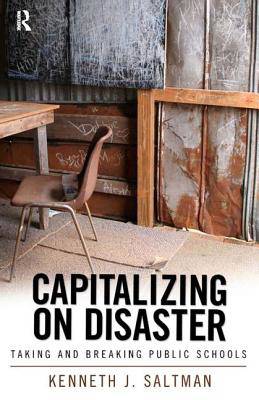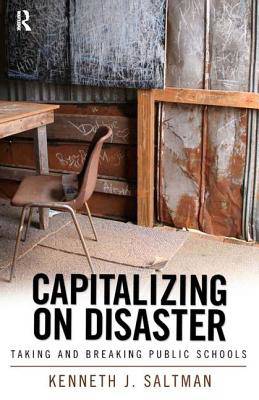
Je cadeautjes zeker op tijd in huis hebben voor de feestdagen? Kom langs in onze winkels en vind het perfecte geschenk!
- Afhalen na 1 uur in een winkel met voorraad
- Gratis thuislevering in België vanaf € 30
- Ruim aanbod met 7 miljoen producten
Je cadeautjes zeker op tijd in huis hebben voor de feestdagen? Kom langs in onze winkels en vind het perfecte geschenk!
- Afhalen na 1 uur in een winkel met voorraad
- Gratis thuislevering in België vanaf € 30
- Ruim aanbod met 7 miljoen producten
Zoeken
€ 111,45
+ 222 punten
Uitvoering
Omschrijving
Breaking new ground in studies of business involvement in schooling, Capitalizing on Disaster dissects the most powerful educational reforms and highlights their relationship to the rise of powerful think tanks and business groups. Over the past several decades, there has been a strong movement to privatize public schooling through business ventures. At the beginning of the millennium, this privatization project looked moribund as both the Edison Schools and Knowledge Universe foundered. Nonetheless, privatization is back. The new face of educational privatization replaces public schooling with EMOs, vouchers, and charter schools at an alarming rate. In both disaster and nondisaster areas, officials designate schools as failed in order to justify replacement with new, unproven models. Saltman examines how privatization policies such as No Child Left Behind are designed to deregulate schools, favoring business while undermining public oversight. Examining current policies in New Orleans, Chicago, and Iraq, Capitalizing on Disaster shows how the struggle for public schooling is essential to the struggle for a truly democratic society.
Specificaties
Betrokkenen
- Auteur(s):
- Uitgeverij:
Inhoud
- Aantal bladzijden:
- 184
- Taal:
- Engels
- Reeks:
Eigenschappen
- Productcode (EAN):
- 9781594513824
- Verschijningsdatum:
- 1/10/2007
- Uitvoering:
- Paperback
- Formaat:
- Trade paperback (VS)
- Afmetingen:
- 169 mm x 214 mm
- Gewicht:
- 249 g

Alleen bij Standaard Boekhandel
+ 222 punten op je klantenkaart van Standaard Boekhandel
Beoordelingen
We publiceren alleen reviews die voldoen aan de voorwaarden voor reviews. Bekijk onze voorwaarden voor reviews.









